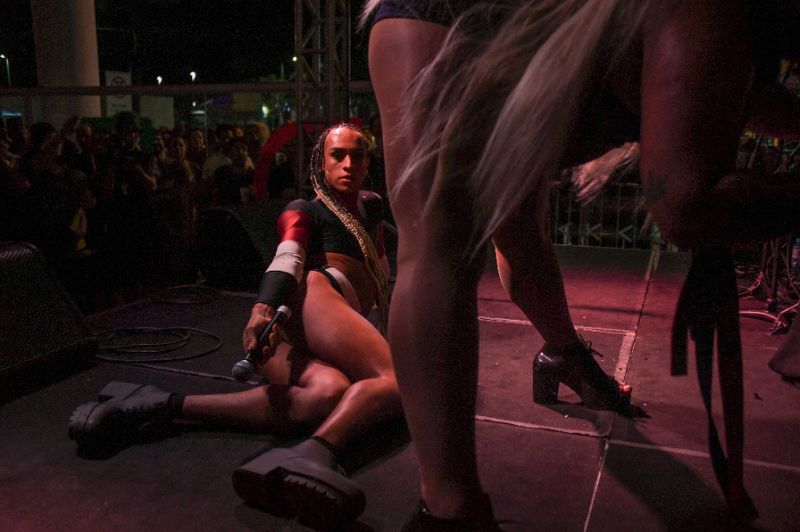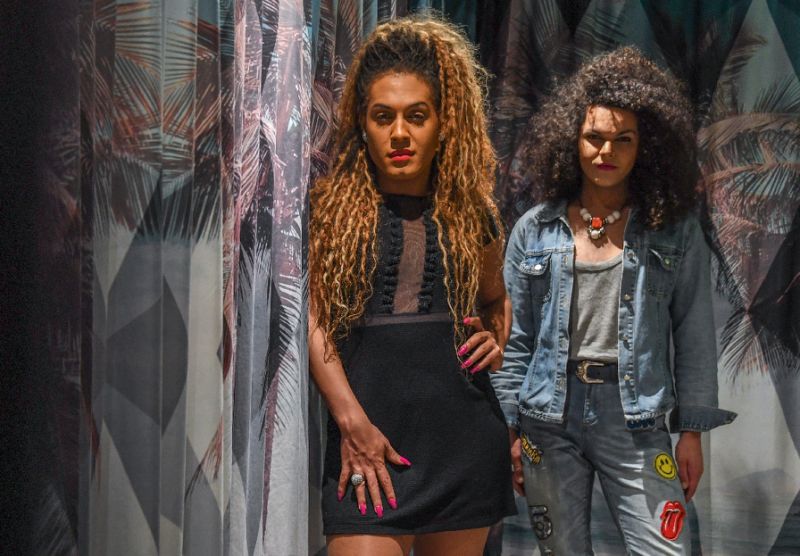
Transgender singers are singing a tune of activism and calling for tolerance in Brazil, the world’s most dangerous place for transgender people, according to a report by AFP posted last Thursday.
Of the world’s count of 295 murders of transgender victims from the period of October 2015 and September 2016, Brazil accounted for 123 killings.
Life expectancy of transgender individuals is 35 years, against the national average of 75 years. Numbers from the website Advocate revealed that there is one trans person killed every 21 hours, and the country’s murder rate is 16.4% higher than the rest of the world.
But five artists, naturally born male and identifying as female, are making waves in forwarding transgender rights through their work, bringing into light what were once-hidden crimes of transphobia in the country.

The Brazilian funk artist
“I’ve known who I am, as a transsexual and artist, since I was a child. Funk opened doors for me and allows me to support my son and my mother,” Camila Monforte said at the backstage of Rocinha’s first LGBT dance. Rocinha is one of Rio’s informal urban areas.
Monforte was born in a tough neighbourhood. She was thrown out of the family house when she was an adolescent, and lived roughly in a Rio train station working as a prostitute. Currently, she is a funk performer under the name MC Trans and lives with her 21-year-old adopted son.
“Music has let me heal my wounds, bring my family back together and rebuild my life,” she said. When asked about her decision to not transition completely as a woman, she replied, “I love how I am.”
To her 600,000 followers on Facebook and audience of her YouTube videos, she spreads a message of tolerance. “I’ve made it to 30 years old and that’s hard for a Brazilian trans… I consider myself victorious not just because of the music but because I survived in a country full of prejudice.”

The activist
“My body was brutalized by having to follow the norms and sometimes you have to answer back with the same violence. To be a gender terrorist is to accept risks,” Linn da Quebrada, 27, said. Bellicose statements like these and her being an outspoken activist earned her the moniker gender terrorist.
For her, surviving as a trans in her country means being on the attack. “We’re not wanted in schools, in shops or at work, so now we are occupying these spaces.”
A snippet of the song written by her contains combative tones. “Weak bodied, badly abused, this queer is a Molotov (cocktail), the street car for the rejected. I was expelled from the church, because a rotten apple contaminates the others.”
Born in Sao Paulo, da Quebrada performs a mix of rap and funk for people she believes are marginalized by society. At 17, she decided to no longer follow the strict binary gender norms and made a break from her conservative Jehovah’s Witness upbringing.

Lending transgender voice to pop culture
Sao Paulo-born Raquel Virginia, 28, and Assucena, 29, from the north-east of Brazil collaborated and produced the album “Bixa”, a play of the word that means neutral gender with an extra letter “x”.
They decided to make music when they met seven years ago at university. Assucena said that they wanted to lend transgender perspective to the pop music in Brazil.
Both went through a difficult transition, and having to encounter and live in a notoriously transphobic society is the most challenging part. Virginia added that she was stereotyped to be a sex worker during her transition.

Non-diva militant
Priscipila Nogueira, 28, born in Rio de Janeiro as Angelo, is known to her fans including her 100,000 Facebook followers as Mulher Pepita (Pepita Woman).
Her Brazilian funk songs are marked with strongly sexual lyrics, but she said while she’s a militant she is not a diva. “I think people are starting to break through the barriers of prejudice,” she said.
Acceptance still comes hard on some days. She was offended the first time she burst into the pop scene in a video and people thought she was a mutant.
Taking a risky hormone treatment without medical advice, she is hoping that it will pay off one day, saying, “Even if it’s the last thing I do, I’ll win respect.”



Be the first to comment